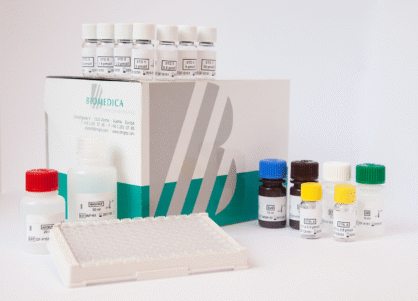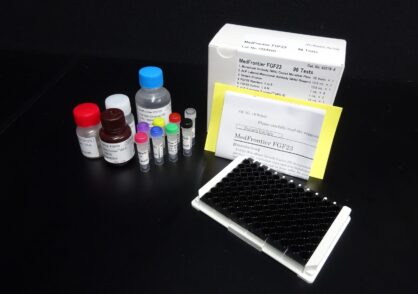Rabbit IgM ELISA Kit
Rabbit immunoglobulin M (IgM) is the first antibody isotype produced in response to an antigen and plays a central role in early humoral immunity. Structurally, IgM exists as a pentamer in circulation, allowing it to efficiently form antigen-antibody complexes and activate the complement system. In research and immunology studies, rabbit IgM serves as a model to investigate immune responses, antibody production, and antigen recognition due to its well-characterized properties and high affinity for antigens in experimental settings.
An ELISA (enzyme-linked immunosorbent assay) for rabbit IgM enables sensitive and specific quantification of IgM levels in serum, plasma, or other biological samples. In research contexts, rabbit IgM ELISAs are commonly used to monitor immune responses in experimental animals, evaluate vaccine efficacy, and study B-cell function or autoimmune processes. The assay’s high specificity makes it suitable for detecting early-stage immune responses and for assessing the kinetics of antibody production following antigen exposure.
While rabbit IgM ELISAs are primarily used in preclinical and experimental research, they can also have translational applications in clinical studies that use rabbit-derived antibodies for diagnostic or therapeutic purposes. For example, monitoring the production of rabbit IgM antibodies can help validate the immunogenicity of experimental vaccines, therapeutic proteins, or other biologics. Additionally, the assay can support the development of immunodiagnostic tools by providing a reliable method to detect and quantify antibody-antigen interactions in controlled experimental settings.
This Rabbit IgM ELISA Kit is manufactured in USA by Eagle Biosciences.





